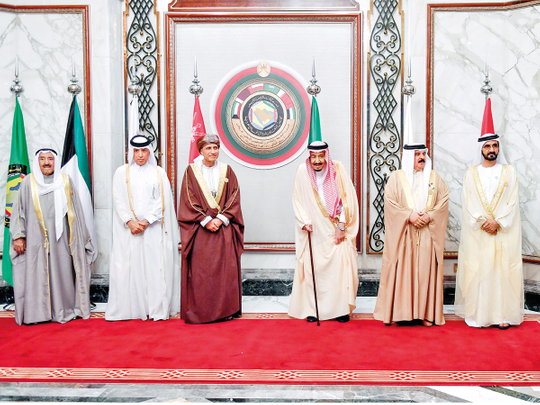
Riyadh: Kuwait’s Emir Shaikh Sabah Al Ahmad Al Jaber Al Sabah, in his speech as the outgoing president of the 38th summit held in Kuwait last year, said the convening of the 39th session of the GCC on time, despite the circumstances the bloc is going through, affirms the keenness on the alliance on the continuation of its meetings as well as genuine understanding of the aspirations and ambitions of the Gulf people.
“We recognise the situation in our region, the serious challenges it faces and the alarming escalation,” Shaikh Sabah said. “This calls upon us to embody the unity of our entity and to strengthen our joint action to support our progress.
Perhaps the most serious challenge is the dispute within our Gulf identity and its continued threat to the unity of our position and the interests of the people of our countries.”
He deplored how the world now looks at the GCC as an entity has begun to suffer from within.
“In the context of our discussion of the challenges we face, we must emphasise our concern about the growing phenomenon of terrorism and denounce it while stressing the need for concerted efforts to address it and rid the world of its evils.”
Shaikh Sabah called for an end to the malicious media campaign that “has reached limits that eroded values and principles, planted the seeds of strife and discord among people and destroyed everything they built together”.
“I am confident that you share with me the importance of responding to this call by stopping the media campaigns. All of us [should] create an atmosphere that will inevitably lead to enhanced opportunities in our ability to contain the dimensions of today’s dispute.”
Shaikh Sabah said terrorism continues to be a grave threat and urged the international community to do everything in its power to rid the world of the scourge.
He also spoke of “humanitarian disasters” that are lurking in the region, citing Yemen and Iraq as examples and hoping for lasting solutions to the conflicts.
Regarding Iraq, Shaikh Sabah congratulated Baghdad on a successful political transition, wishing the war-torn nation good fortune as it begins the reconstruction process.
He hoped that a comprehensive and permanent deal would be reached in Yemen according to relevant international resolutions and the Arab Peace Initiative.
Concerning Iran, the Kuwaiti leader reiterated that relations with Iran should be based on UN principles, mainly non-interference in other states’ internal affairs, respect for their sovereignty and commitment to good neighbourliness values in order to fulfil aspirations for security, stability and peace in the region.










